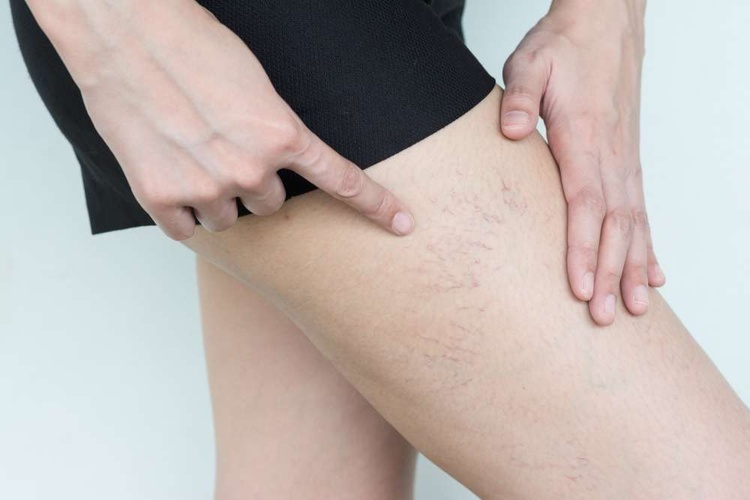Recognize the Signs: A Helpful Guide to Understanding Plaque Psoriasis Symptoms
Plaque psoriasis is a chronic autoimmune condition that affects millions of people worldwide. Characterized by red, scaly patches on the skin, this condition can be both physically uncomfortable and emotionally challenging. Understanding the symptoms, triggers, and treatment options for plaque psoriasis is crucial for those affected and their loved ones. This guide aims to shed light on the key aspects of plaque psoriasis, helping you recognize its signs and take appropriate action.

What Is Plaque Psoriasis?
Plaque psoriasis is the most common form of psoriasis, accounting for about 80-90% of cases. It occurs when the immune system mistakenly accelerates the growth cycle of skin cells, causing them to build up rapidly on the surface of the skin. This buildup results in the formation of thick, scaly patches known as plaques. These plaques can appear anywhere on the body but are most commonly found on the elbows, knees, scalp, and lower back.
Common Symptoms of Plaque Psoriasis
Recognizing the symptoms of plaque psoriasis is the first step toward proper diagnosis and treatment. The primary symptoms include:
-
Red, raised patches of skin covered with silvery-white scales
-
Dry, cracked skin that may bleed or itch
-
Burning or soreness around the affected areas
-
Thickened, pitted, or ridged nails
-
Stiff and swollen joints (in some cases)
These symptoms can vary in severity and may come and go in cycles, with periods of flare-ups followed by remission.
How to Differentiate Psoriasis from Other Skin Conditions
Plaque psoriasis can sometimes be confused with other skin conditions, making accurate diagnosis crucial. Here are some key differences:
-
Eczema: Unlike psoriasis, eczema tends to cause smaller, less defined patches and is more commonly found in skin folds.
-
Seborrheic dermatitis: This condition usually affects oily areas of the body and has a yellowish, greasy appearance, unlike the silvery scales of psoriasis.
-
Ringworm: This fungal infection creates circular patches with clearer skin in the center, unlike the solid plaques of psoriasis.
-
Lichen planus: While also causing itchy patches, lichen planus lesions are typically smaller and have a purplish color.
If you’re unsure about your skin condition, it’s always best to consult a dermatologist for a proper diagnosis.
Triggers That Can Worsen Symptoms
Understanding and avoiding triggers can help manage plaque psoriasis symptoms. Common triggers include:
-
Stress: High stress levels can exacerbate psoriasis symptoms.
-
Skin injuries: Cuts, scrapes, or sunburns can lead to new psoriasis patches (known as the Koebner phenomenon).
-
Infections: Strep throat and other infections can trigger psoriasis flare-ups.
-
Cold, dry weather: Lack of moisture and sunlight can worsen symptoms.
-
Certain medications: Some drugs, including lithium and beta-blockers, may trigger psoriasis.
-
Alcohol and smoking: Both can increase the risk and severity of psoriasis.
-
Obesity: Excess weight can increase the risk of developing psoriasis and may make treatment less effective.
When to See a Dermatologist
While mild cases of plaque psoriasis can often be managed with over-the-counter treatments, there are situations where professional medical help is necessary. Consider seeing a dermatologist if:
-
Your symptoms are severe or widespread
-
Over-the-counter treatments aren’t effective
-
Psoriasis is significantly impacting your quality of life
-
You experience joint pain, which could indicate psoriatic arthritis
-
You’re unsure whether your skin condition is psoriasis or another disorder
-
You’re pregnant or planning to become pregnant, as some psoriasis treatments may not be safe during pregnancy
A dermatologist can provide a proper diagnosis, recommend appropriate treatments, and help you develop a long-term management plan for your plaque psoriasis.
Plaque psoriasis is a complex condition that requires ongoing management and care. By recognizing the symptoms, understanding triggers, and knowing when to seek professional help, individuals with plaque psoriasis can take control of their condition and improve their quality of life. Remember, while there is no cure for psoriasis, many effective treatments are available to manage symptoms and reduce flare-ups.
This article is for informational purposes only and should not be considered medical advice. Please consult a qualified healthcare professional for personalized guidance and treatment.




